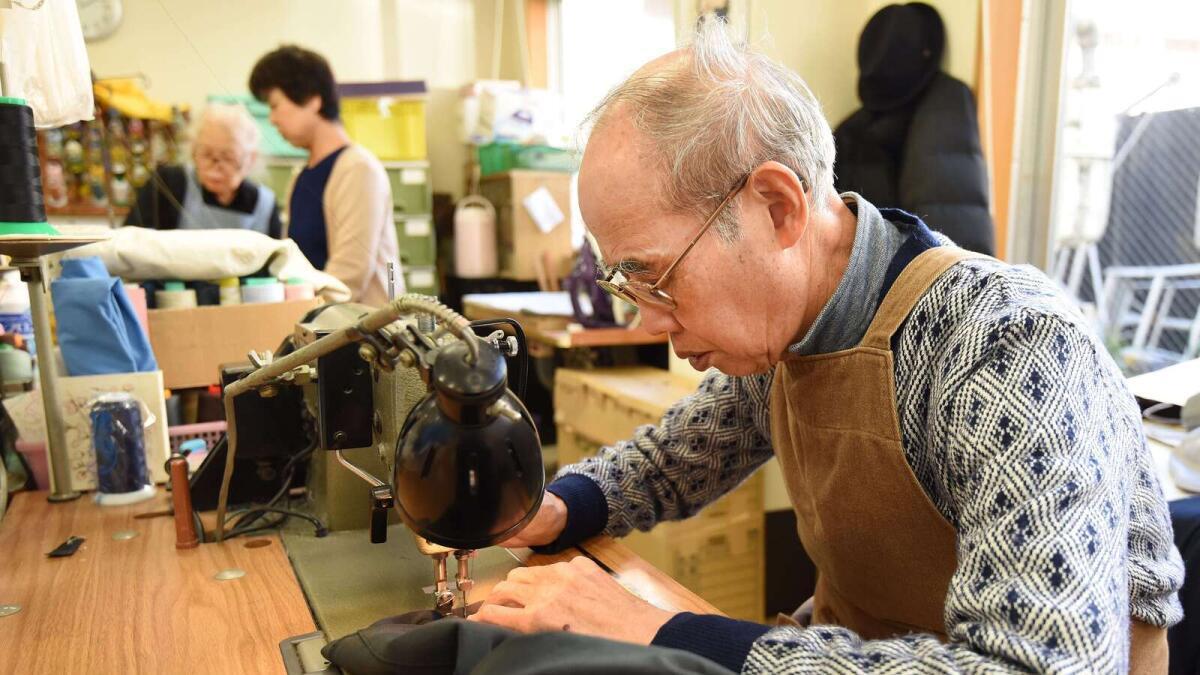
'Use It Or Lose It': Seniors In UAE Advised To Keep Brain Active By Learning New Skills
“Keeping our brains active by continuous learning is a life-long essential task,” said Dr Manio von Maravic, neurologist at the German Neuroscience Centre Dubai.
“Learning something new creates and powers new neural connections or brain synapses that helps to reduce the risk of cognitive decline and dementia. New languages or practical skills improve the cerebral mental flexibility as well as problem-solving abilities.”
Zahida said getting back to driving has made her more confident and given her a sense of freedom.“Since I have just started again, I am not confident enough to go long distances,” she said.“However, I am able to drive to see my grandchildren or go out for grocery shopping - activities for which I had to rely on my daughter earlier. Also, it made me so happy that I had not forgotten driving. Even after 20 years, I was able to instantly recall everything about driving with muscle memory. I am enjoying the freedom which has come with it.”
Continue to learnResearch has suggested that continuing to learn new things throughout adulthood may be key to keeping cognitive skills sharp as people age, another expert said.
"In fact, middle-aged and older adults may be just as good at learning as younger people,” said Dr Akta Trivedi, a neurologist at Aster Clinic in Al Qusais.“For older adults, continued learning can help to prevent, slow, or minimise cognitive decline during the golden years. One can effectively think of brain as a 'use it or lose it' organ.”
She said that currently there was little evidence to say that brain training prevents dementia.“One study found that brain training helps to improve thinking speed, but not memory or reasoning,” she said.“However, this is a relatively new area of research. Most studies have been too small or too short to effectively test the effect of brain training on slowing the progression of dementia.”
However, Dr Manio added that despite the lack of evidence, the only effective possibility to reduce the risk for dementia or to delay its progression is indulging in life-long learning in addition to reducing risk factors.
“People should actively maintain their brain health by learning new skills, having social engagement, doing intellectual and physical activities and engaging in daily brain stimulation,” he said.“Eventually, it may prevent us developing this condition.”
Skills to masterMastering new languages and learning to play an instrument could be ways to ensure sharp cognitive functions, said Dr Manio.
“Several studies have shown that playing an instrument or singing in a choir reduced significantly the dementia risk,” he said.“Other creative skills like drawing, painting, knitting and crocheting can improve fine motor skills. Technology skills should also be mastered and people must use a manifold of apps and computer programmes to enhance concentration, attention, memory, and flexible thinking.”
Physical activities like Nordic walking, jogging, dancing and swimming were also important to the health, the doctor added.“These increase brain oxygenation, stimulate and enhance the nerve growth factor, and help better control other risk factors like diabetes, high lipids and arterial hypertension, which contribute to the development of vascular dementia."
Dr Akta recommended a good diet, adequate sleep and other activities.“Following a Mediterranean diet and MIND (Mediterranean-DASH Intervention for Neurodegenerative Delay) diet may help slow the progression or reduce your risk of Alzheimer's disease,” she said.
“These eating patterns include plenty of anti-inflammatory foods like green leafy vegetables, berries, legumes, nuts, olive oil, whole grains and at least three servings of fish each week."
In terms of activities, the specialist advised against watching too much TV, "as it is a passive activity that does little to stimulate the brain".
"People should also cross-train their brain by doing crossword puzzles or Sudoku, reading, playing cards or putting together a jigsaw puzzle."

Legal Disclaimer:
MENAFN provides the
information “as is” without warranty of any kind. We do not accept
any responsibility or liability for the accuracy, content, images,
videos, licenses, completeness, legality, or reliability of the information
contained in this article. If you have any complaints or copyright
issues related to this article, kindly contact the provider above.


















Comments
No comment